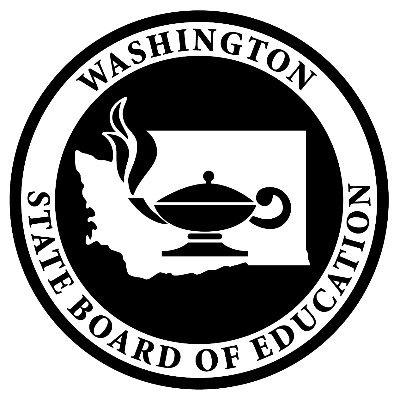Washington State Board of Education Sets Strategic Priorities for Upcoming Legislative Session
Advancing Equity and Accessibility in Public Education
The Washington State Board of Education is proactively addressing longstanding educational inequities by prioritizing policies that promote fairness and inclusivity across all public schools. Acknowledging the persistent achievement gaps that disproportionately affect students from marginalized communities, the Board is committed to initiatives that enhance resource allocation, support culturally relevant pedagogy, and ensure equitable opportunities for every learner regardless of their socioeconomic background or geographic location.
Among the Board’s legislative proposals are efforts to:
- Expand early childhood education funding with a focus on families facing economic hardships.
- Implement mandatory anti-bias training for educators to cultivate welcoming and supportive classroom environments.
- Improve technology infrastructure to eliminate disparities in digital access between urban and rural districts.
| Focus Area | Desired Outcome | Legislative Initiative |
|---|---|---|
| Equitable Funding | Balanced distribution of educational resources | Revise and update funding allocation formulas |
| Inclusive Curriculum | Representation of diverse cultural narratives | Mandate adoption of culturally responsive teaching materials |
| Technology Access | Bridge the digital divide | Expand broadband and device availability in schools |
Prioritizing Career and Technical Education to Meet Workforce Demands
Recognizing the critical role of Career and Technical Education (CTE) in preparing students for the modern labor market, the Washington State Board of Education is championing enhanced support for CTE programs. The Board’s agenda calls for increased investment, broader program accessibility, and stronger collaboration with industry leaders to equip students with relevant skills aligned with Washington’s economic growth sectors. Special attention is given to improving participation rates among underrepresented groups and integrating cutting-edge technologies into CTE curricula.
Key policy recommendations include:
- Securing additional funding for advanced equipment and professional development for educators.
- Addressing participation disparities by providing targeted grants to rural, minority, and low-income students.
- Fostering partnerships with businesses to offer internships, apprenticeships, and hands-on learning experiences.
- Modernizing curricula to incorporate emerging fields such as artificial intelligence and sustainable technologies.
| Priority | Action Plan | Anticipated Result |
|---|---|---|
| Funding Enhancement | Allocate $20 million for facility upgrades and program expansion | Improved learning environments and increased enrollment |
| Equitable Access | Distribute grants targeting underserved populations | Greater diversity in CTE participation |
| Industry Engagement | Establish a statewide network for student internships | Higher employment rates post-graduation |
| Curriculum Innovation | Integrate AI and green tech modules into courses | Students prepared for future job markets |
Expanding Mental Health Support Services in Schools
In response to increasing mental health challenges among students, the Washington State Board of Education is advocating for substantial enhancements to mental health resources within public schools. The Board emphasizes the necessity of increased funding to expand counseling services, implement comprehensive mental health education, and strengthen partnerships with community mental health providers. These measures aim to promote emotional well-being, early intervention, and resilience among students.
Specific legislative goals include:
- Improving counselor-to-student ratios to provide more individualized support.
- Introducing mandatory mental health curricula to reduce stigma and encourage help-seeking behaviors.
- Securing pilot program grants focused on students disproportionately impacted by the COVID-19 pandemic.
| Resource Category | Current Status | Target by 2025 |
|---|---|---|
| School Counselors | One counselor per 400 students | One counselor per 250 students |
| Teacher Mental Health Training | 5 hours annually | 15 hours annually |
| Community Mental Health Partnerships | Limited coverage | Comprehensive statewide collaboration |
Strengthening Accountability to Elevate Student Achievement
To address persistent educational disparities, the Washington State Board of Education is calling for enhanced accountability systems that promote transparency and continuous improvement. The Board stresses the importance of detailed data collection and regular performance evaluations to ensure schools meet established standards and that resources are effectively utilized. These measures are designed to foster a culture of responsibility and drive measurable improvements in student outcomes.
Proposed strategies include:
- More frequent and detailed data reporting to enable timely interventions.
- Targeted support initiatives for schools identified as underperforming through objective metrics.
- Greater engagement of parents, educators, and community members in school oversight and improvement efforts.
| Accountability Measure | Expected Benefit | Implementation Timeline |
|---|---|---|
| Quarterly Progress Reports | Early detection of challenges | Within six months |
| Performance-Based Funding | Incentivize school improvements | Next academic year |
| Community Advisory Panels | Enhanced transparency and accountability | Ongoing |
Looking Ahead: The Path Forward for Washington Education
As the Washington State Board of Education presents its comprehensive priorities for the forthcoming legislative session, education stakeholders statewide are poised to observe how these proposals will influence policy decisions. The Board’s agenda reflects a strong dedication to fostering equitable, inclusive, and effective educational environments that prepare all students for success. The legislative response to these initiatives will be pivotal in shaping the trajectory of public education in Washington. For continuous updates and in-depth analysis, stay connected with Washington State Standard as the session progresses.







